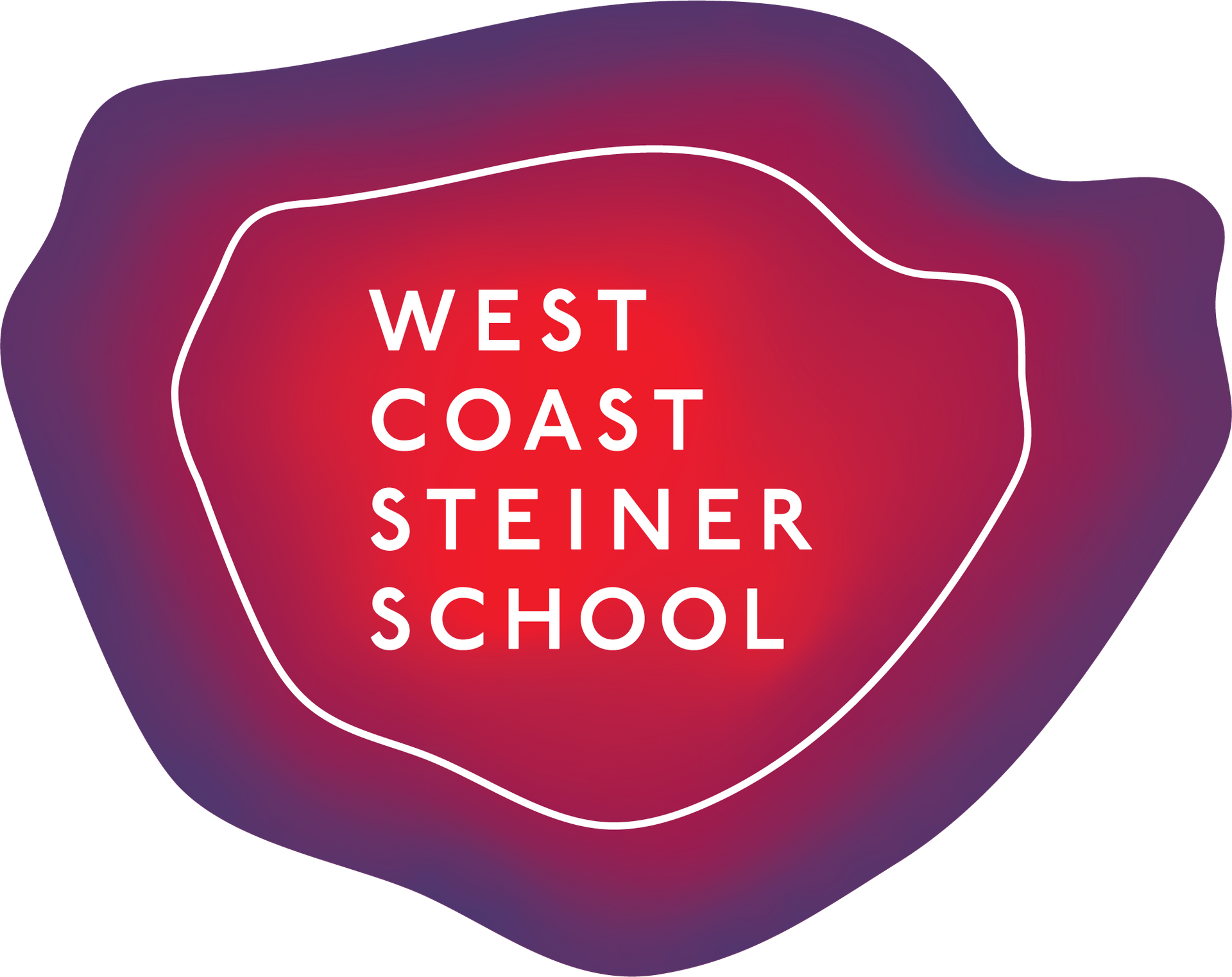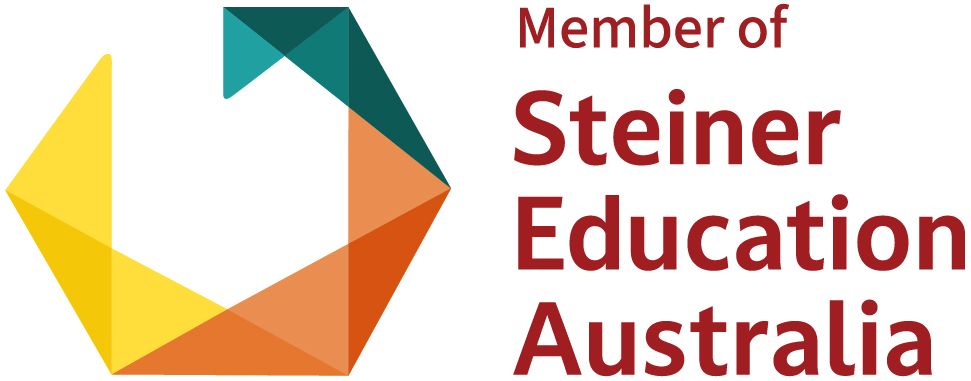West Coast Steiner School is committed to being a Child Safe Organisation taking a preventative and participatory stance on child protection issues and promoting a child safe environment.
Childhood in an Uncertain World
By Vanessa Fountain
“We must eradicate from the soul all fear and terror of what comes toward us out of the future. We must acquire serenity in all feelings and sensations about the future.
We must look forward with absolute equanimity to all that may come, and we must think only that whatever comes is given to us by a world direction full of wisdom. This is what we have to learn in our times. To live out of pure trust in the ever-present help of the spiritual world.
Surely nothing else will do if our courage is not to fail us. Let us properly discipline our will, and let us seek the awakening within ourselves, every morning and every evening.” – Rudolf Steiner
We must acquire serenity in all feelings and sensations about the future.
We must look forward with absolute equanimity to all that may come, and we must think only that whatever comes is given to us by a world direction full of wisdom. This is what we have to learn in our times. To live out of pure trust in the ever-present help of the spiritual world.
Surely nothing else will do if our courage is not to fail us. Let us properly discipline our will, and let us seek the awakening within ourselves, every morning and every evening.” – Rudolf Steiner
History has shown that there have been and will always be those times when our souls are challenged to look towards the future with equanimity and trust in a world direction full of wisdom. It can be difficult when we are faced with a humanitarian crisis (from whatever your viewpoint), and a level of uncertainty that perhaps many of us have not experienced in our lives before. We try to plan for the unknown, future guess the unguessable and attempt to control what is perhaps out of our sphere of control.
My intent here is not to try to make sense of, or comment on the world events as they are unfolding but to look at what we can do to support our children, fostering trust and equanimity in a rapidly changing world.
Perhaps it is useful to consider the following story:
There was once a father and a grown son. The father decided to go on a road trip, visiting all the magnificent landscapes and heritage sites in the region. He was gone a while before it became apparent to the son that the father was missing. The son decided to trace the footsteps of his father to find out what had happened and where his father was. As he followed his father’s movements, he became more and more frustrated as each led to a dead end. One night he found himself staying on a Native American Reserve. He was sharing the reason for his journey with the hotel manager when he was told of a wise chief that lived nearby who was known for his good counsel.
The son went and sat before the chief. He unburdened himself of the worries, the uncertainty of his father’s whereabouts. But mostly the son spoke of the regret and the sense of helplessness that he experienced as his life seemingly spun randomly on the wheel of fate. The chief sat quietly and listened with great compassion in his eyes. When the young man had finished talking, the chief asked him if he had noticed what he was sitting on? The young man looked down and for the first time he noticed a breathtakingly beautiful, coloured and intricately patterned rug. The chief asked the son to turn the corner of the rug over. When he did so he saw a tangled mass of coloured threads. Some were knotted together in groups, some were loosely wrapped together, some were frayed at the edges, some hung in single strands, some were randomly woven into the mass of the other threads. All were beautifully coloured. The chief then gestured for the son to turn the corner back down and again they looked at the beautifully coloured and intricately patterned rug.
The chief told the son that the back of the rug is sometimes how we experience life, a mess of seemingly random events and meetings, knotting us, looping us, fraying us and at times leaving us dangling, wondering what the purpose, or meaning of it all is.
The front of the rug, the chief explained, is our lives viewed from a broader perspective. It is those random encounters, meetings, relationships, and struggles bringing us together to create something so beautiful and colourful, which we could never have individually conceived of or created. Chance meetings and experiences that seemed insignificant at the time have formed us and led us down the pathway that is our life.
This story speaks to the understanding that each of the threads of our lives, are important. Our life purpose matters but equally it relies on the acknowledgement that so too do the lives of everyone else.
The life purpose or dharma of everyone is vitally important to the intricate tapestry of human life.
From here comes the equanimity, from here comes the compassion, the serenity, and the trust. The what in our lives is not always within our control but the how, our response, most certainly is.
Within a Steiner Primary School, we seek to protect the childhood of our students through the environment, the curriculum, and our shared vision of our students, educated in freedom, capably leading the way forward into an unknown future.
We provide certainty and security to our children through the rhythms and routines of the days and weeks. We punctuate the weeks and months with the acknowledgement of the seasons and our relationship to our Earth. This relationship is given colour, shape, and movement through the celebration of the festivals. Through story, art, song, and movement we are able share our trust in the future with our students. We gift them the time and space to develop the skills, capacities and understandings needed for a future world that we, as teachers and parents, are perhaps not able to visualise or comprehend.
Rudolf Steiner’s curriculum looks to the development of the child and meets children where they are at a given developmental stage and gives them what they need to move forward to the next phase of development.
It weaves a tapestry rich, colourful, and intricate, leaving the threads to create in freedom the next stage of humanity’s development.
The children have the curriculum; but what can we as parents do to assist the unfolding and protection of our children’s childhood. There are many aspects to look at, but I would like to focus on the rites of passage that are available to us to give meaning, provide certainty and a road map through the key stages of life.
Life, just like a tapestry, has a right time to introduce a new colour, a pattern, a texture.
So too in childhood I believe there is a right time and an appropriate emphasis for rite of passage events. It can be tempting when there is so much uncertainty, to bring forward and over emphasise key milestone events. Perhaps we seek to compensate for our own experiences or perceived disappointments. The picture that has built for me over the years is that by introducing experiences and emphasis that are inappropriate or disproportionate to the child’s age and stage of development, we set them up for a life of needing bigger and better, of needing to have more “bells and whistles” to satisfy the artificially created need, the urge for more. On the other hand, children who are held and given age-appropriate experiences in my opinion and experience are developmentally more prepared and equipped to meet the challenges of life, know their limits, their preferences, their values and have the strength to hold to them against the pressure of peers and society.
So, what sort of experiences am I alluding to? Here are just a few:
• Large birthday parties for the very young child. These can be overwhelming and unnecessary. In the early years we recommend one friend per age. So, a six-year-old child may have a discreet party with six friends. Large parties do not always account for the delicate balance of developing friendships, social skills and the overwhelming nature of large and seemingly unstructured events.
• Movie experiences before they are developmentally appropriate.
• Gifts/experiences that are developmentally early, eg a double or queen-sized bed brought for a very young child.
• Kindergarten and Primary school graduation. Here we need to be mindful that we are dealing with 6 and 12/13-year-old children. There is an increasing trend to bring the trappings of the Year 12 ball down to these youngsters. The Kindergarten Crowning Ceremony is enough in itself for the Kindergarten child. The Class 6 Graduation is just that – Class 6. Normal Sunday best attire is appropriate, leaving the ball gowns and associated accoutrement for the Year 12 ball.
We overburden our children with experiences that they may beg us for but that are inappropriate and overwhelming for their developing sense of self and place in the world.
I liken it to reading your child a book. With the book they will form pictures that they are able to digest and process. If we show them a movie of the book there may be images that they are not ready for/do not have the capacity to digest/make sense of, overburdening the developing self. Additionally, what do we leave the child to look forward to, to prepare for, wait for (developing patience, resilience and most importantly not becoming a slave to instant gratification)? The stakes get forever higher and so does the corresponding risk to the developing individuals as they enter the teenage years.
If I know anything about parenting it is that there are no guarantees, and we will make mistakes.
We need to trust and have great courage to parent. Some things in our lives and the lives of our children will be out of our control. But there are aspects we can hold. We are fortunate in Steiner Schools to have a curriculum that holds the child in the context of humanity’s journey thus far and prepares them in freedom for an unknown future.
I trust that those who come to a Steiner school are guided by the hand of the master weaver, call it what you will. I trust that there is a plan and that each of us is important and plays a vital role in the overall success of that plan. Let us work together and support each other from Playgroup to Class 6 in creating meaningful, age-appropriate milestone events that build strength of character, inner resolve, teach delayed gratification, the appreciation of the simple joys of life and real connection.

